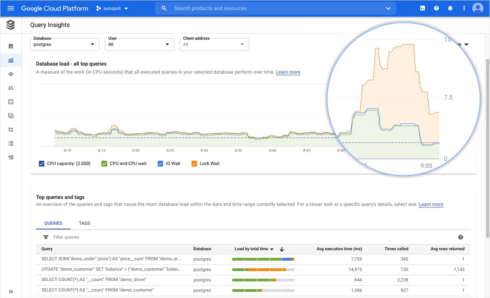
Google has announced Cloud SQL Insights, a new insights tool is designed to help developers understand and resolve database performance issues on Cloud SQL. According to Google, developers typically don’t have the tools or skills necessary to solve problems, and database administrators are often unavailable.
“Insights complements your existing APM and observability tools. Insights provides database metrics and traces through the open standard OpenTelemetry and Cloud Monitoring and Cloud Trace APIs. This makes it easy to do end-to-end tracing in your existing tools and provides a full-stack view of your environments from the application through the database,” Andi Gutmans, general manager and vice president of engineering for databases at Google, and Miesh Bhagat, product manager at Google, wrote in a post.
Thundra announces a new sidekick IntelliJ IDEA plugin
The pre-production environment platform provider Thundra has launched the Sidekick IntelliJ IDEA Plugin, a new tool for cloud debugging and distributed tracing. Thundra aims to eliminate the need to multiple pre-production environment tools, and enables developers to improve the development and maintenance of applications.
“As more is continuously asked of the developer, Thundra’s vision is to empower developers with the perfect sidekick. Thundra focuses on removing barriers in front of developing and delivering applications by providing distributed tracing integrated with cloud debugging with no-code configuration,” stated Serkan Özal, CTO, Thunda.io. “With our new Sidekick IDE Plugin, developers can develop, debug and deliver robust, reliable and resilient applications in a pre-production environment and makes their jobs and lives easier.”
Features include the ability to set a tracepoint, take a snapshot, see the whole transaction by distributed tracing, and reload small code changes without having to deploy.
Linkerd Steering Committee launched
The new steering committee will work to expand the service mesh’s end user community, commitment to open governance, and focus on a user-centered roadmap. According to the team, Linkerd has seen rapid growth with adoption from Microsoft, H-E-B, EverQuote and HP. Having an official representation of the Linkerd community will help the project move forward and solve immediate problems, the team announced.
“Linkerd is a unique service mesh. In a space that’s very prone to hype cycles and marketing-driven development, we’ve always put our users first,” said William Morgan, CEO of Buoyant, the creator of Linkerd. “The Linkerd Steering Committee extends this same philosophy, and will help us ensure that the needs of Linkerd adopters—who trust Linkerd to power mission-critical systems around the world—will continue to be at the utmost center of Linkerd’s evolution.”
Red Hat adds public datasets to the marketplace
According to the company, this addition will help developers solve problems, innovate and drive new app development. “Together, we’ve curated an initial selection of datasets with input from our enterprise clients and with a focus on topics at the heart of our end customers’ needs or current situations. These include high-demand datasets related to COVID-19, the U.S. Census, employment figures, demographics, weather, city data, and more. Our goal is to enable you to find and use raw data, as well as Kubeflow Pipelines, and most importantly, to send your chosen dataset to the application of your choice running on the Red Hat OpenShift cluster of your choice,” Sara Hagen, partner business development leader at Red Hat Marketplace, wrote in a post.
Red Hat plans to add more datasets throughout the year as well as provide access to models and APIs.





